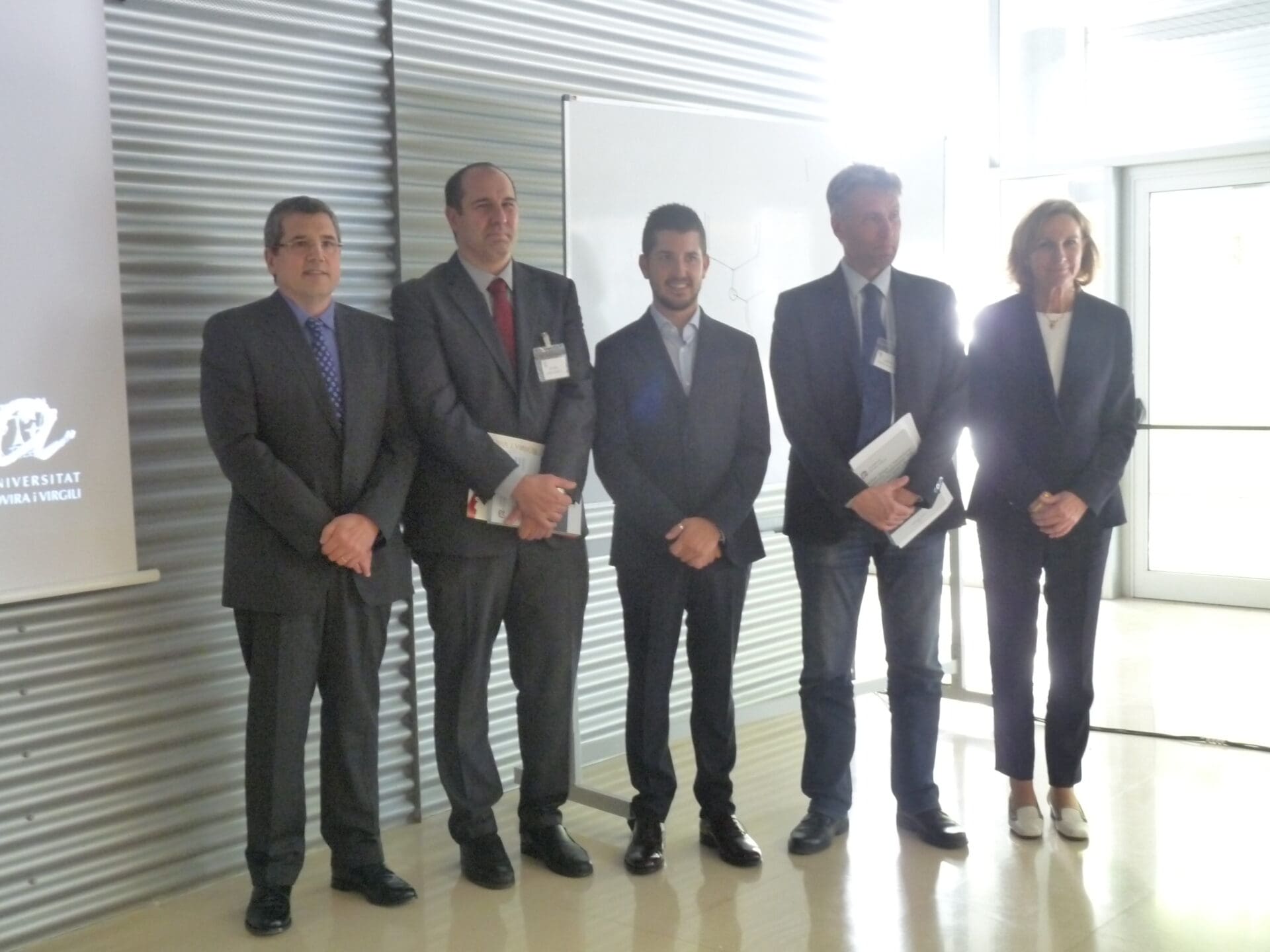Congratulations Dr. Lao!
Joan Ramon Lao, PhD student under the supervision of Prof. Anton Vidal (ICIQ), has defended his PhD Thesis entitled “Rhodium Catalysis in Enantioselective Hydrogenative Transformations: From the Design of New Ligands to Reactions of Atypical Substrates” (assigned to the Organic and Analytical Chemistry Department of the Universitat Rovira i Virgili) publicly on October 30th at the ICIQ Auditorium.
The members of the evaluation committee were: Prof. Mercedes Amat (Universitat de Barcelona), Prof. José Alemán (Universidad Autónoma de Madrid) and Prof. Pher Andersson (Stockholm University)
Abstract
The present doctoral thesis focusses on the design and synthesis of modular phosphine-phosphite ligands, on their further application in the development of new efficient and enantioselective catalytic systems for different rhodium-mediated hydrogenative transformations and on their application in the preparation of optically active compounds with biological, pharmaceutical and agrochemical interest. Firstly, a new synthetic methodology for the preparation of phosphine-phosphite ligands, which contain a P-stereogenic group and a single carbon atom spacer between the two phosphorus functionalities as particular structural features, is described. After their preparation, the applicability of the resulting rhodium catalysts in asymmetric hydrogenations and hydroformylations was assessed and high values of regio- and enantio-selectivity in the reaction products were observed. Secondly, the present work also encompasses the development and application of new catalytic approaches for the preparation of enantioenriched sulfoxides through hydrogenative kinetic resolutions mediated by rhodium complexes derived from phosphine-phosphite ligands. This synthetic methodology, in which two enantioenriched sulfoxides are obtained in a single synthetic step, has been applied in a structurally diverse array of racemic unsaturated sulfoxides. High values of enantioselectivity in the reaction products have been obtained. Moreover, the practicality of this strategy has been proved by the preparation of three enantioenriched synthetic intermediates of biologically active compounds. Finally, in the last part of the thesis, the development of a new stereoselective methodology based on a hydrogenative desymmetrization of achiral 1,4-dienes, together with its subsequent application in the preparation of an array of highly enantioenriched and synthetically valuable secondary and tertiary alcohols, are described.
Related news

Let's create a brighter future
Join our team to work with renowned researchers, tackle groundbreaking
projects and contribute to meaningful scientific advancements







 20-12-2024
20-12-2024 


















